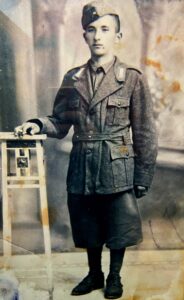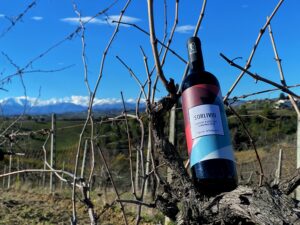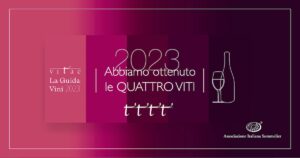The story of our grandfather Livio is not sensational, glamorous: it is the story of any other grandfather who with little means worked hard to build a future for himself in the immediate post-war period of the last century, not a national hero, but the hero that many families have had.
t is a premise due to historical respect for facts that have socially affected all of us, on several levels, and which have defined the social path of our country.
Livio was a farmer, he reached the third grade. Then the war, the forced enlistment in something that a young Italian his age could barely pronounce, like so many others. Sent to Greece to guard war zones. Returned after a year with asthmatic cough. Young people sent into jeopardy, yesterday as today: scripts that are repeated over time, albeit in different contexts and scenarios.
You're probably reading this story from a smartphone. The same from which we connect with the world in a network, in a continuous and constant connection that paradoxically sometimes isolates us from others; and from which we look at the world and at the incessant flow of news of wars. The era changes, the scenography too but it seems almost the same script.
Livio is the man who tried to write his script, starting from the bottom, working as a sharecropper for third parties. Up to the redemption of that piece of land on which he has poured so much effort and sweat. When the old owner put the land up for sale, Livio did not have all the capital necessary for the purchase with him. The bank had granted a loan for only half the amount. Nothing to do. But if that piece of land is life for you and your family with four children fields it, you can't give up!
And here comes what today really looks like a black and white movie made on good intentions and good feelings. Except that what we are about to tell corresponds to the truth, to a piece of social fabric that gave the word solidarity a profound meaning to which we are no longer used today, except in the constant request for donations to the various SMS: Livio has begun to ask his friend for credit. Enjoying the reputation of a man of his word, always there when someone needed help, he managed to reach the missing quota thanks to the solidarity of the time. The extraordinary thing was that everything took place on trust: the word given and the handshake. And the repayment of the loan took place in priority order of importance and not of quantity: whoever was in need, despite having lent little, was honored as a priority. Helping each other was a powerful social value that made it possible to build solid and spontaneous networks of solidarity of which today we can only read about, as in this precise moment: how many things have changed since then!
The owner of the land had to respect the law of pre-emption, not only towards neighbors but also towards his sharecroppers had turned to Livio to sign the authorization to sell the land to others. Livio proudly refused because he would have been the buyer: the future of his family now had a little more certainty and at the same time they all had to roll up their sleeves.
The land dedicated to wheat and barley gradually saw a change of destination: Livio was only in the third grade but he understood the value under his feet because he was in the fields every day and breathed their dust every day. Don't think it was all roses and flowers.
He had sensed that it was necessary to increase the production of grapes and consequently of wine and since he had acquired a Lambretta to go and sell the products he had grown, he had got into the habit of inquiring about the type of grapes and cuttings suitable for planting in his land, conversations that took place according to a precise ritual: each one made the other taste his own wine, not a competition but a comparison. It happened more than sixty years ago and the words clone, varietal and, terroir were far from coming and the empirical exchange between farmers was at the basis of everything. And so Livio in the third grade had shown good entrepreneurial sense and carefully chose the Sangiovese vines to plant.
The same vines that are faithful witnesses of the stubbornness, the willpower and the enormous sacrifices of a man and his family to redeem himself from a fate he refused to suffer: an example that has come down to us grandchildren and that we try to live it in our everyday life and in what is the seasonal trend of these aged vines that we treat with reverence, as a gentleman of a certain age to whom we address ourselves with respect, learning to listen to their needs. They are vineyards with the 60 YO genetic makeup, difficult to replicate as a genetic heritage and from the grapes produced here annually we produce Polisia and Konè.
We produce a limited number of bottles of Sorlivio but only in the years that we deem the best for the level of ripeness, acidity and sugar of the grapes; this wine that we have decided to pay homage using the appellation Sor which in our area was reserved only for owners and masters. An aging of approximately twentyfour years, half in French oak barrels and half in bottles.
And this latest vintage, awarded with the highest recognition by the guide edited by the Italian Sommelier Association Vitæwith the Quattro viti, would have moved Livio and above all made him proud for the work understood and carried out by his son first and then by his grandchildren, he would have appreciated the elegance, the growing tension of the freshness and acidity of this wine, 100% Sangiovese produced in the Piceno area, which accompanies the table without ever being intrusive but taking great care of the guests, accompanying them in a drink, allow us to define it, with an emotional sip. The story liquid of a ransom, made up of sacrifices and promises: it comes out of the bottle to tell about Livio Vallorani and enters the glass of each of us to make us appreciate those who are our personal heroes, of our family or of our life and to toast to them. Because this is what our grandfather would have wanted more than anything else: share a glass of good wine with simplicity and fraternal love.
freshness and acidity of this wine, 100% Sangiovese produced in the Piceno area, which accompanies the table without ever being intrusive but taking great care of the guests, accompanying them in a drink, allow us to define it, with an emotional sip. The story liquid of a ransom, made up of sacrifices and promises: it comes out of the bottle to tell about Livio Vallorani and enters the glass of each of us to make us appreciate those who are our personal heroes, of our family or of our life and to toast to them. Because this is what our grandfather would have wanted more than anything else: share a glass of good wine with simplicity and fraternal love.
Thank you Grandpa for what you have accomplished
And thank you for coming this far to share the story of this small part of Italy.